Arts
Examining the role of The Arts as a catalyst for healing, transformation and action
Introduction
The practice of Art—in its infinite forms, functions and implications—is the most accessible and universal way of constructing meaning out of the world we inhabit.
Our Philosophy: The Arts are not just for experts. They are not solely for the enjoyment of the elite. They are not a superfluous extravagance. The Arts are for us all, expert and novice alike. They are not just an end in and of themselves, but a means. They shape, and are shaped by the world we inhabit.
Students in the Arts Scholars program gain a deeper understanding of the impact of art as a means to explore society and culture against the backdrop of our individual differences and shared experiences.
What you can expect: No matter your major, area of artistic interest, or skill level, as a member of our community, you will be challenged to strengthen your personal artistic skill set, experiment with new and different art forms, and gain a deeper understanding of the value of the arts in our personal and collective lives. We will investigate the power of the arts to:
- Communicate difficult concepts
- Advocate for social change
- Investigate the human experience
- Explore our own identities
- Develop our capacities as creative problem solvers and critical thinkers
- Reinforce, but also upend, existing systems of inequality and oppression
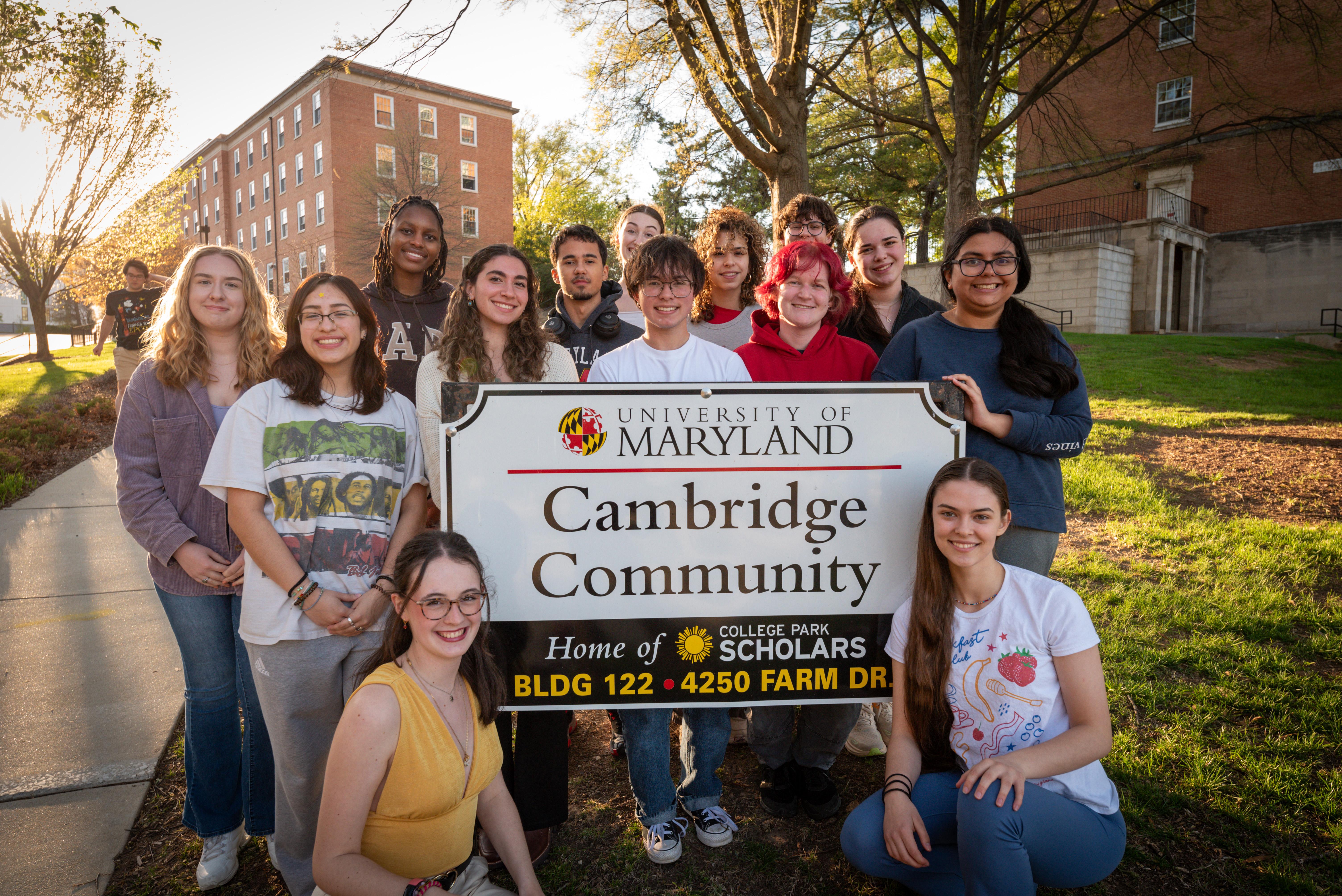
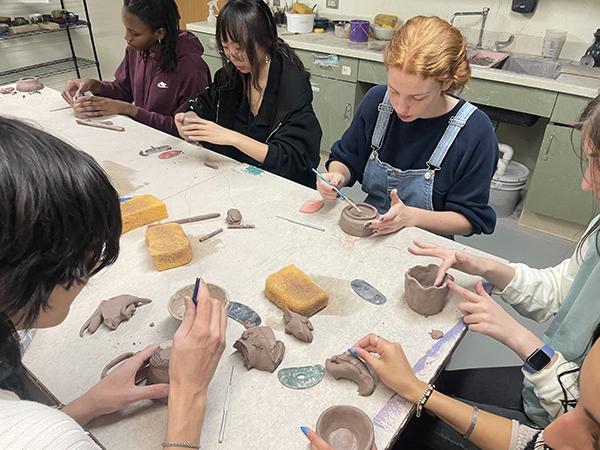
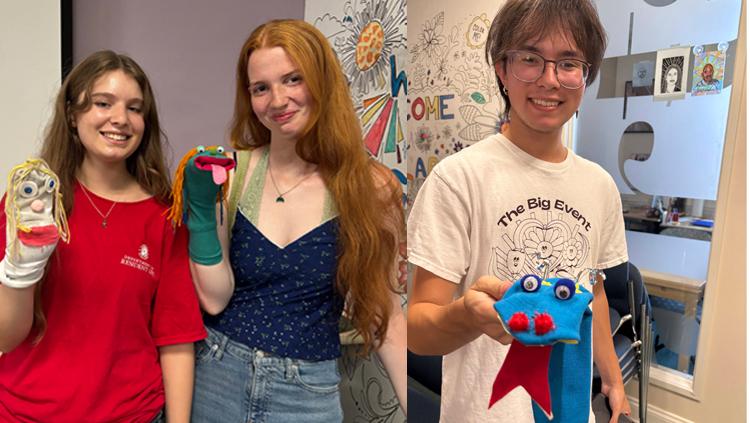
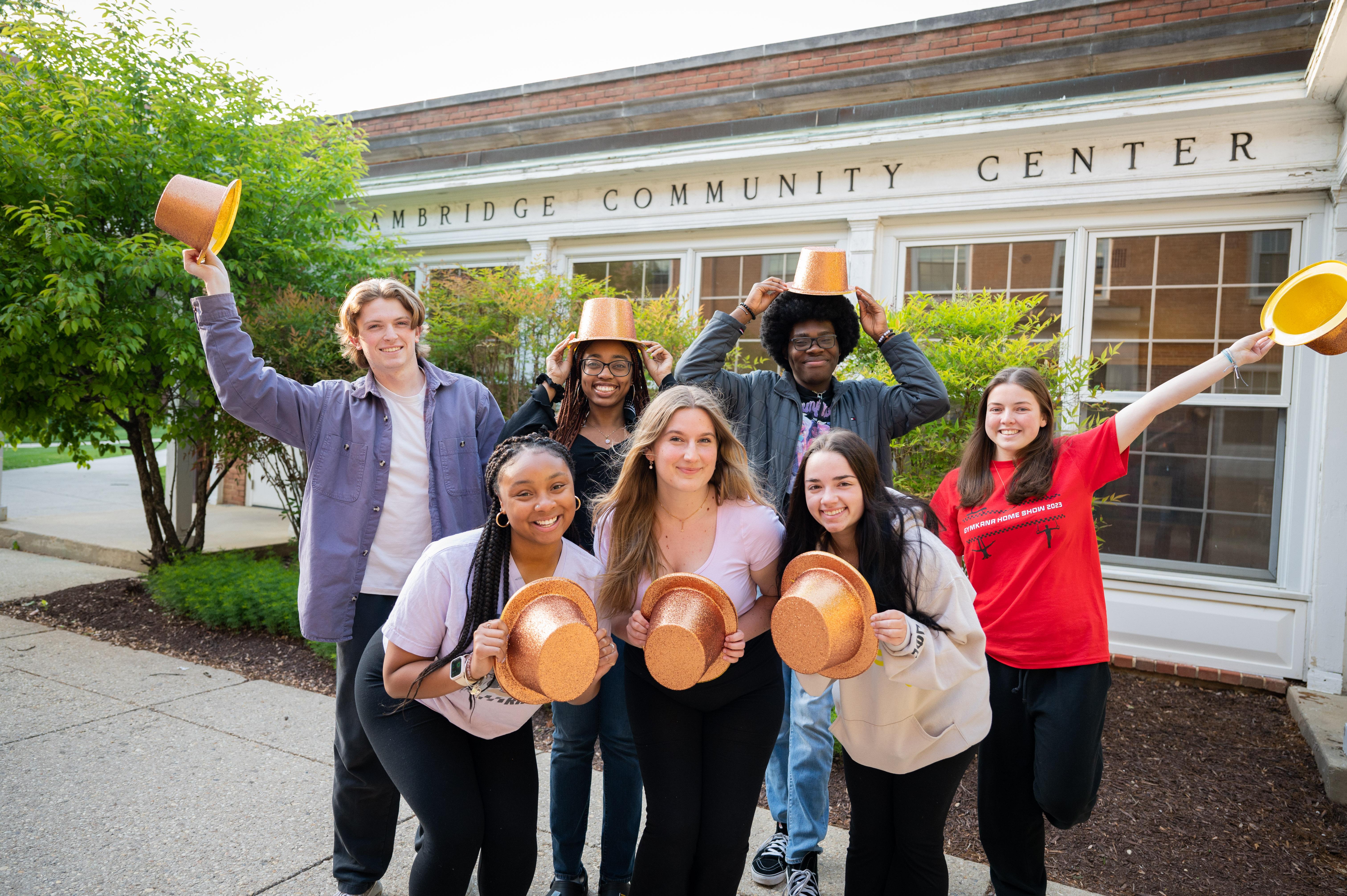
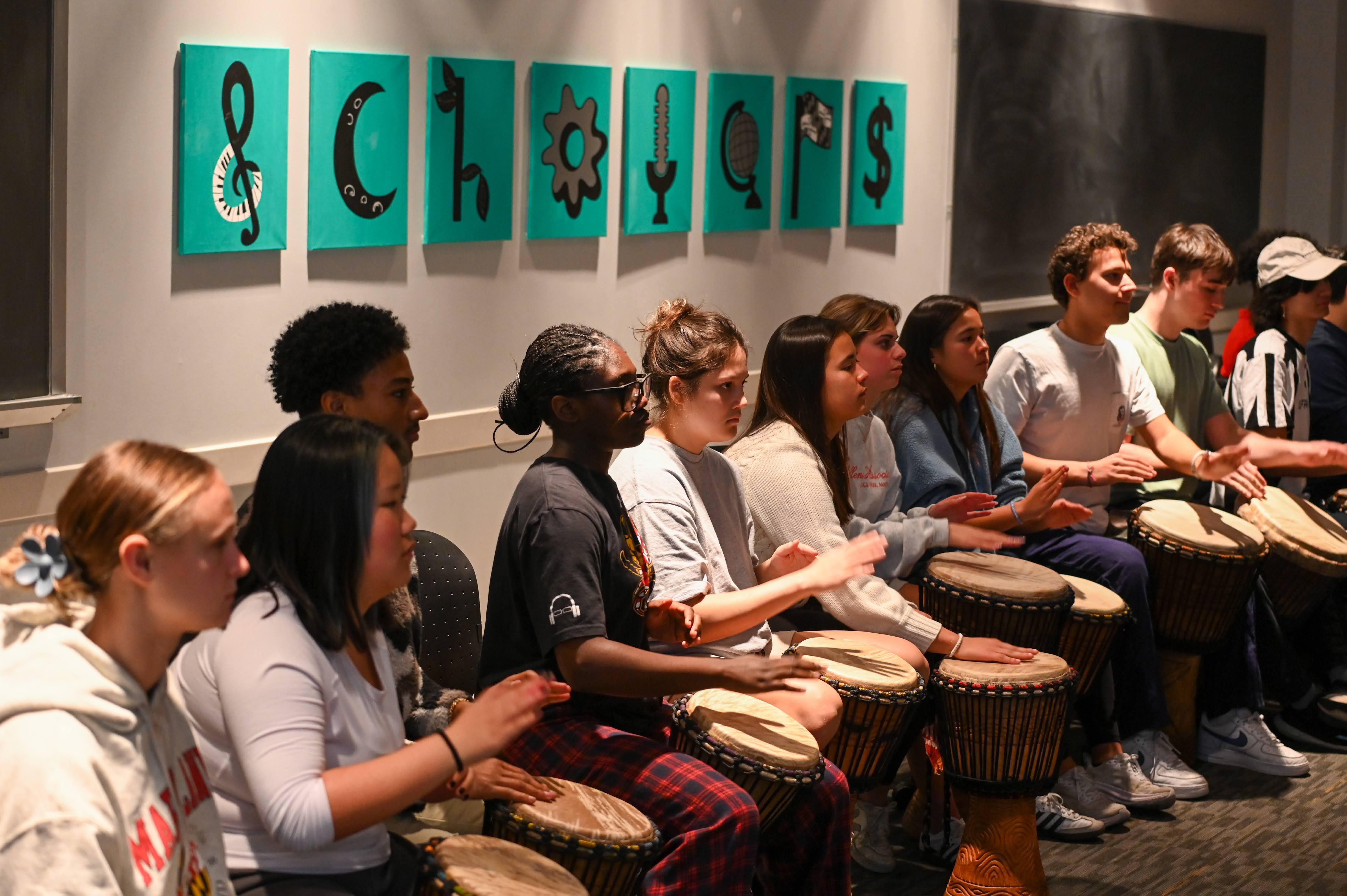
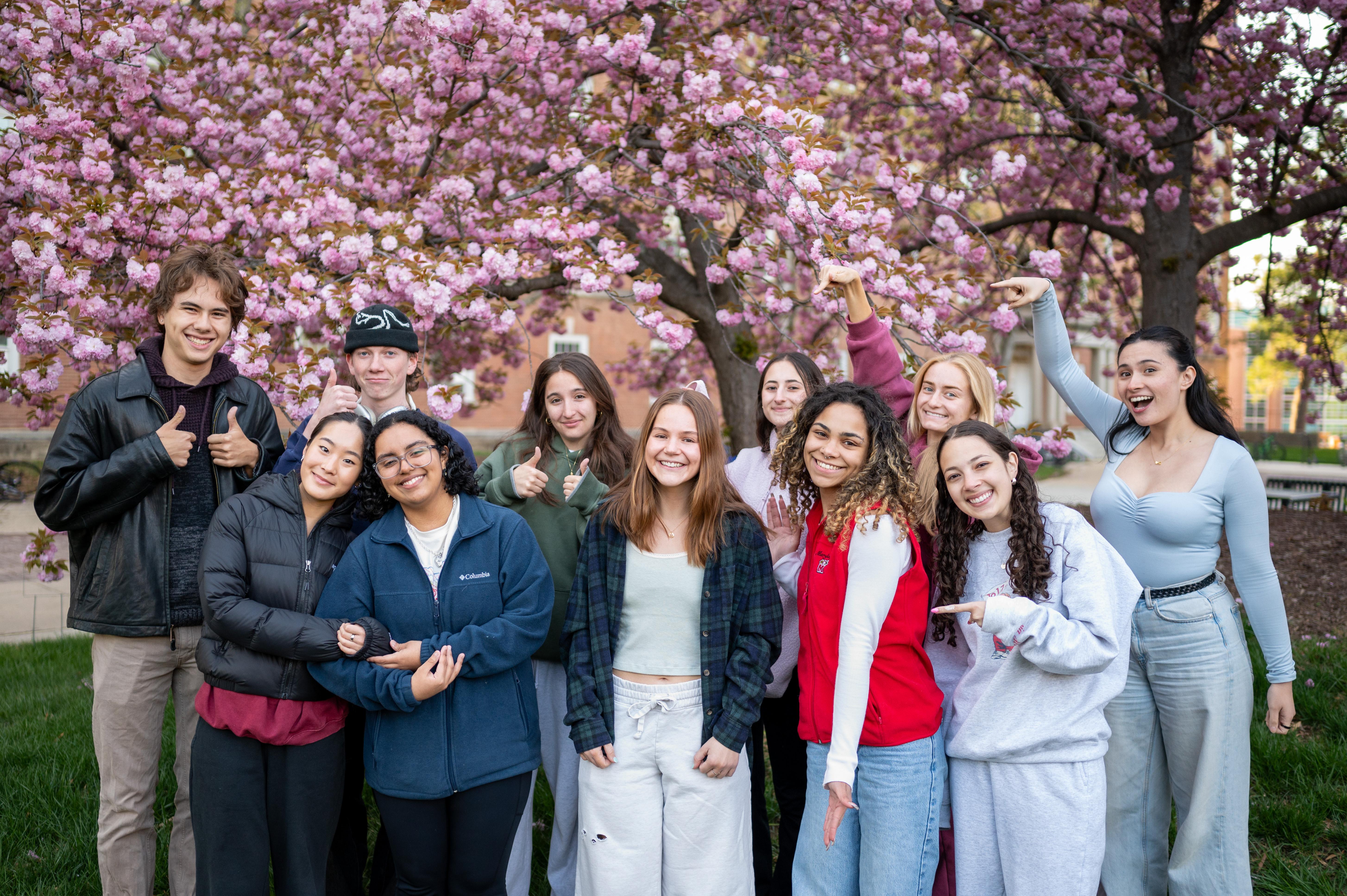
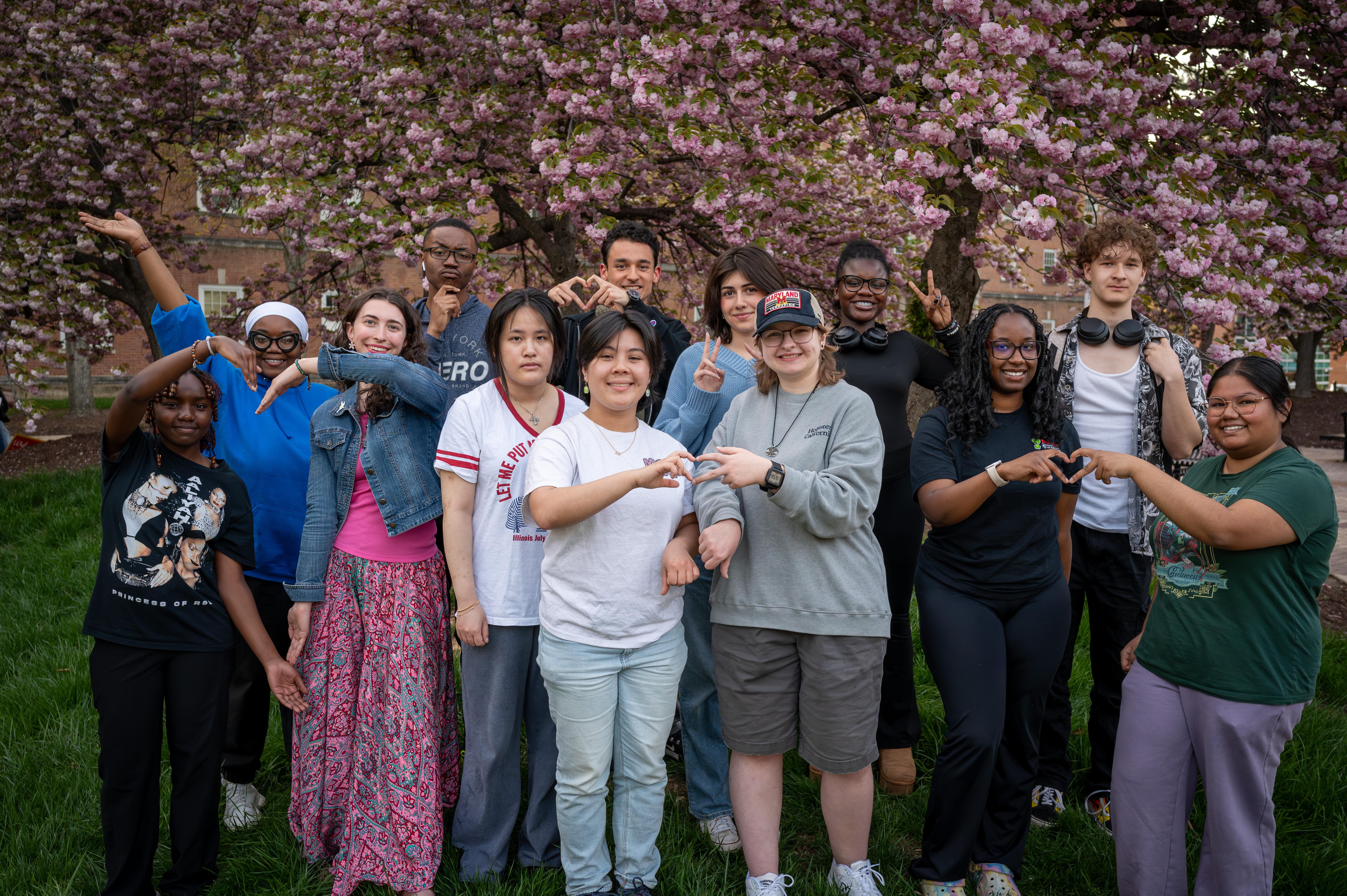
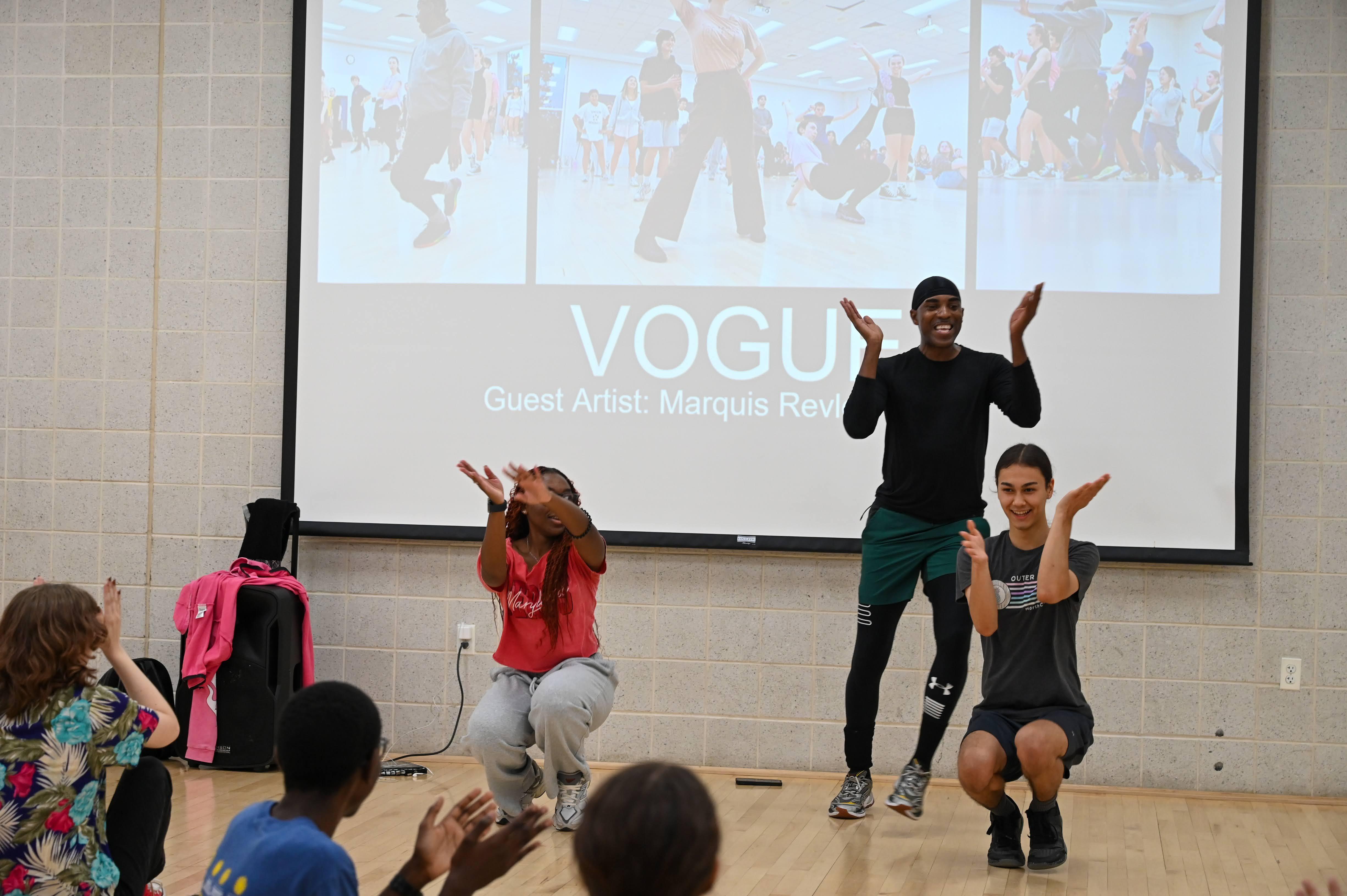
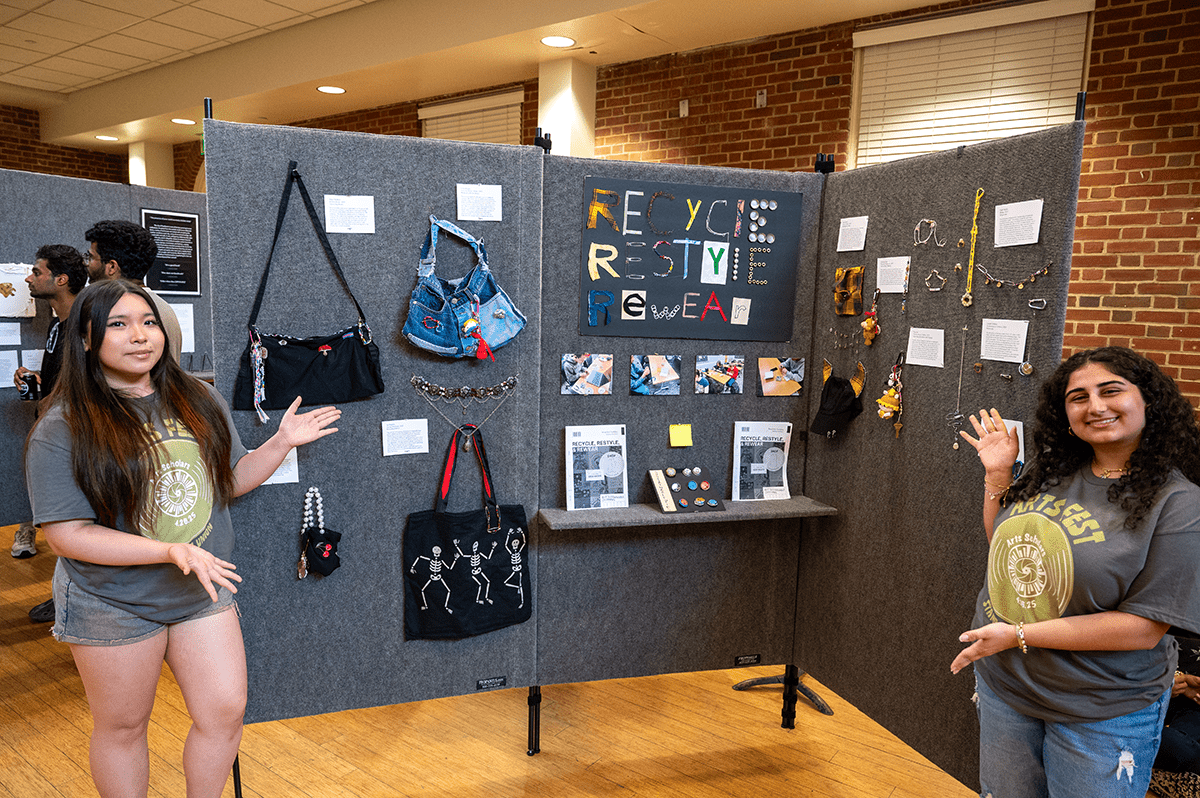
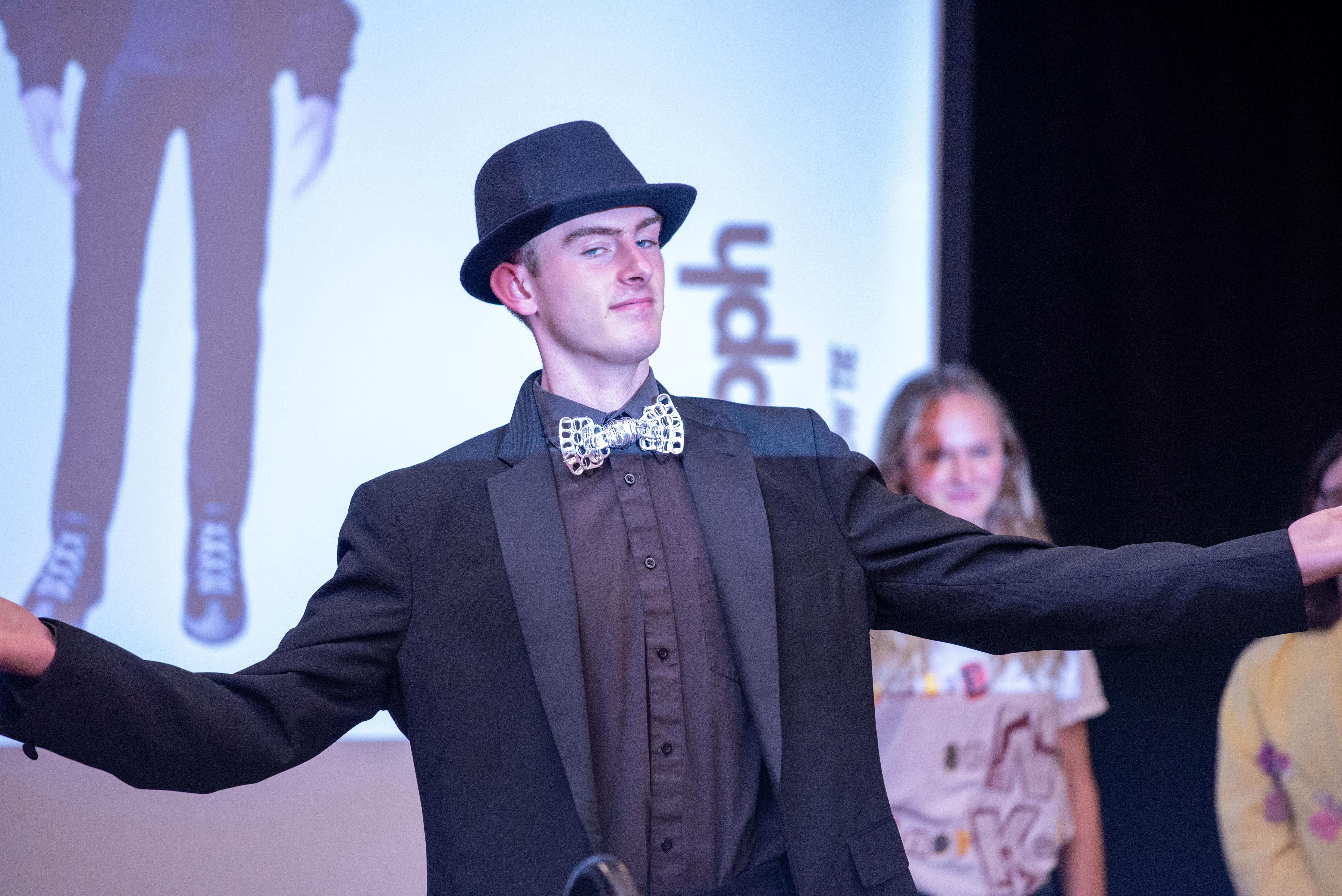
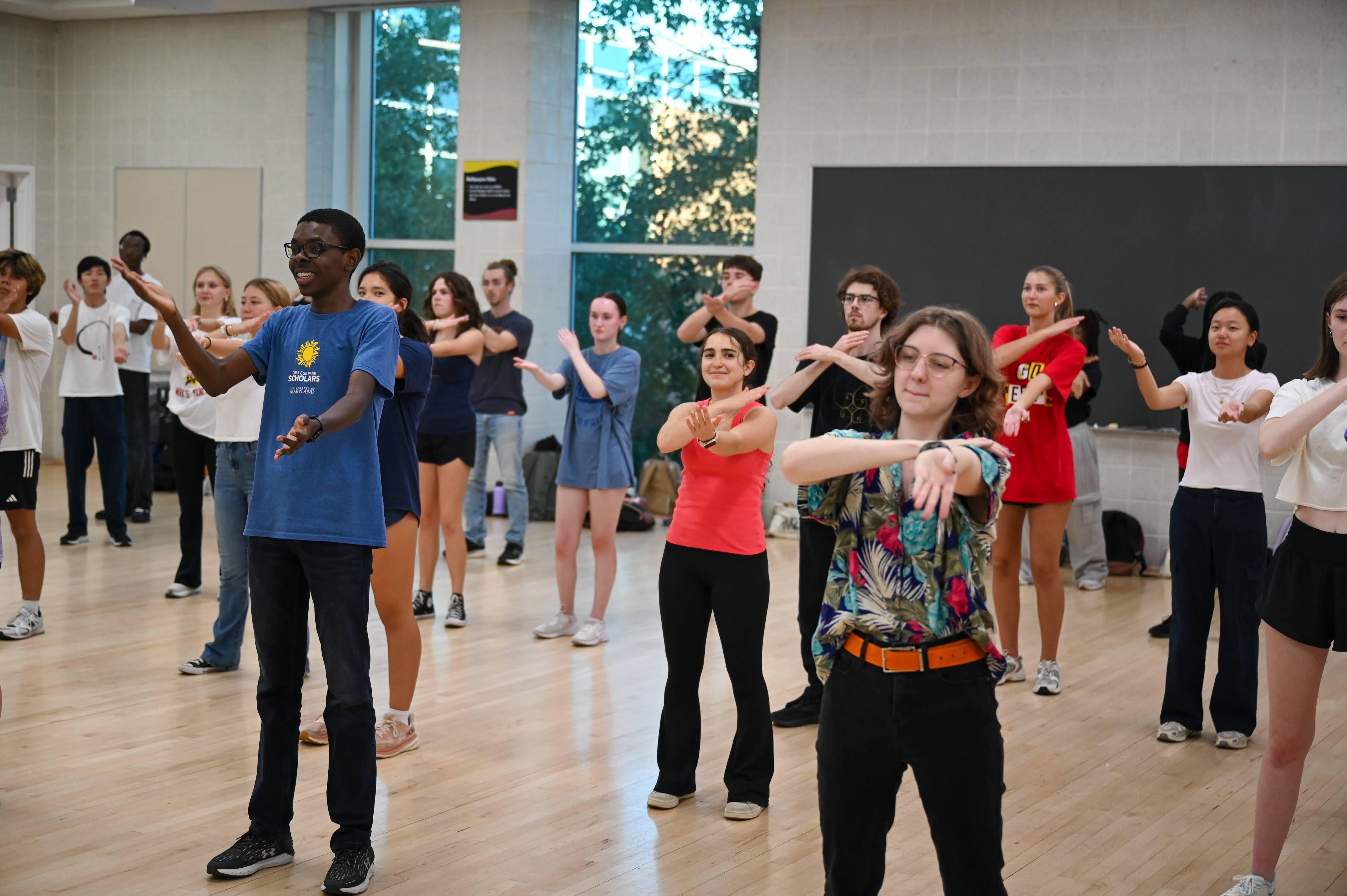
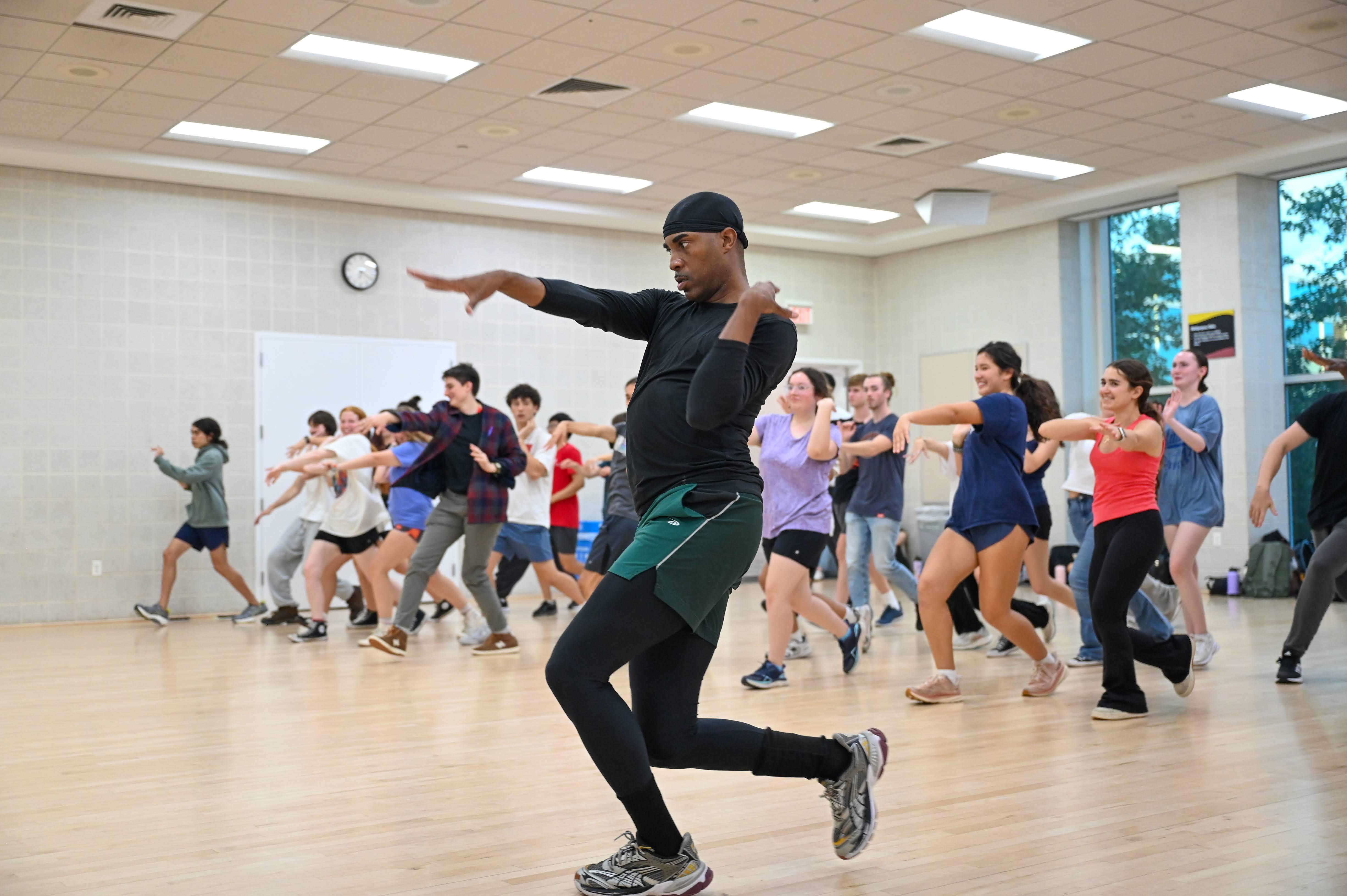
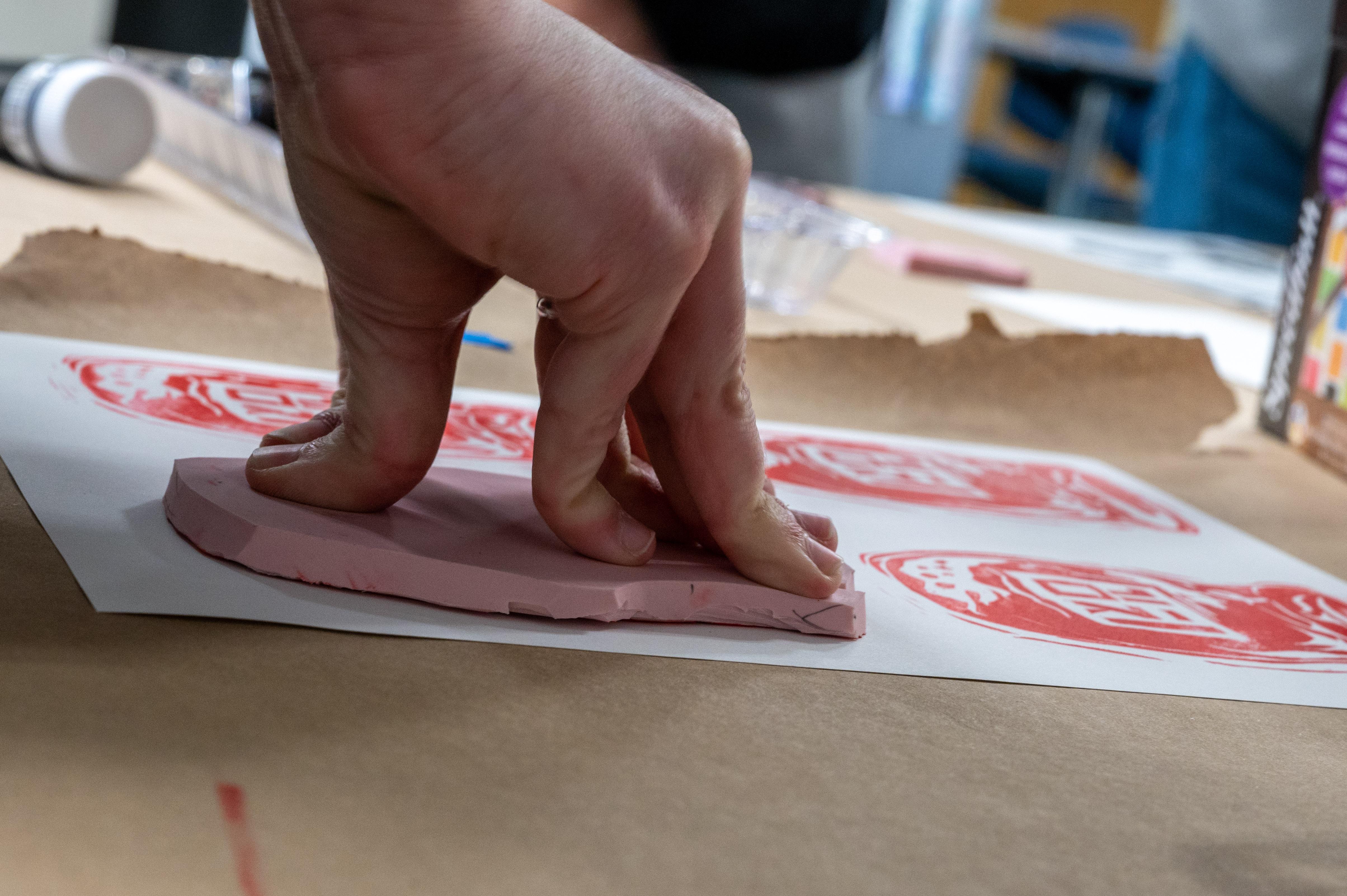

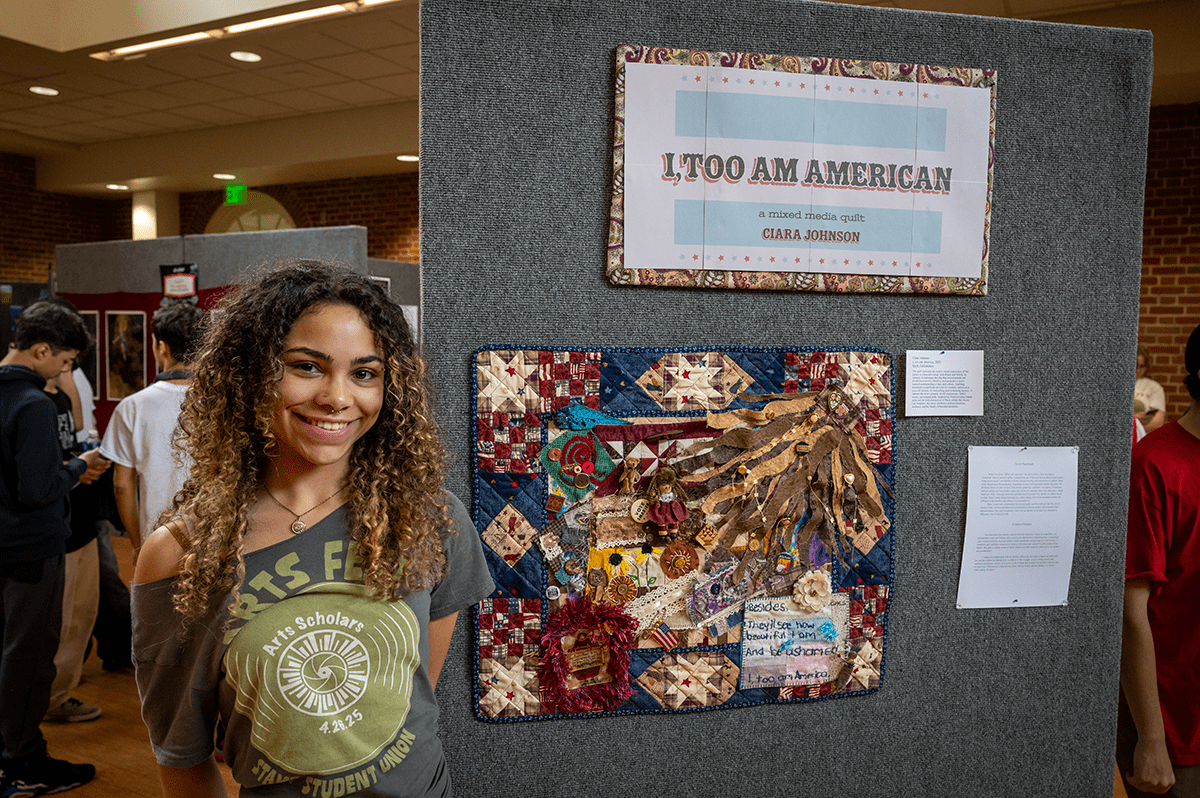
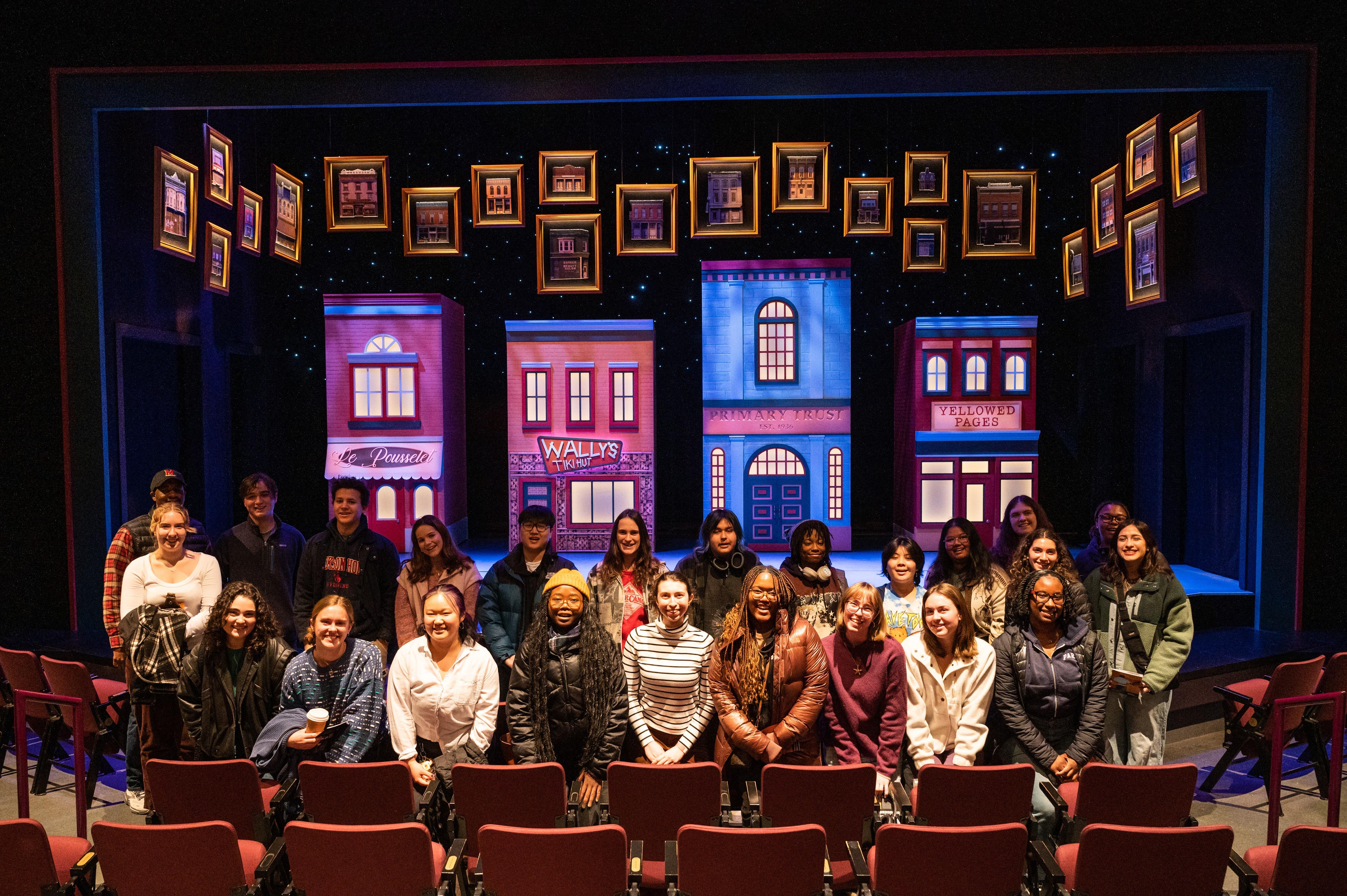
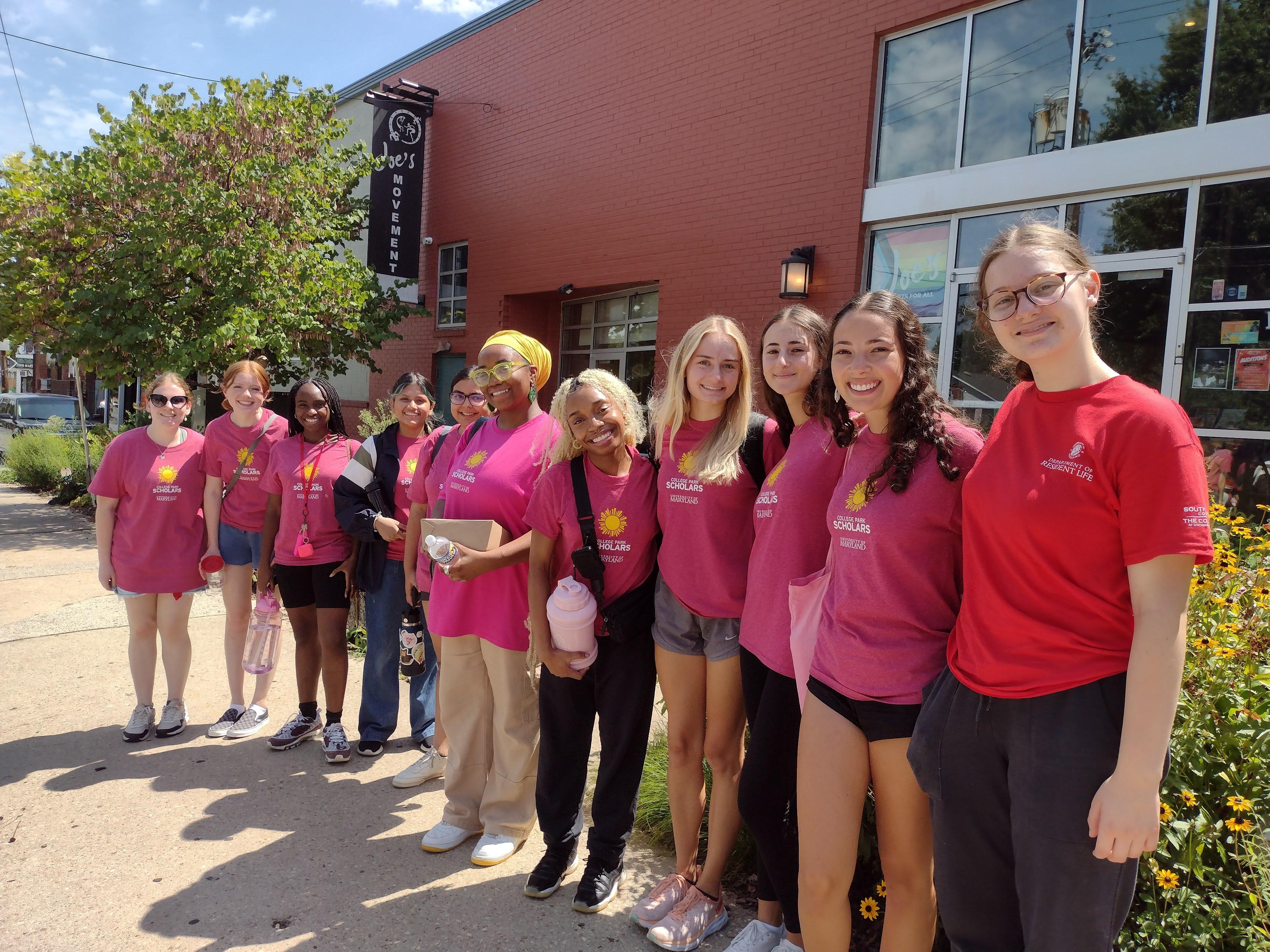
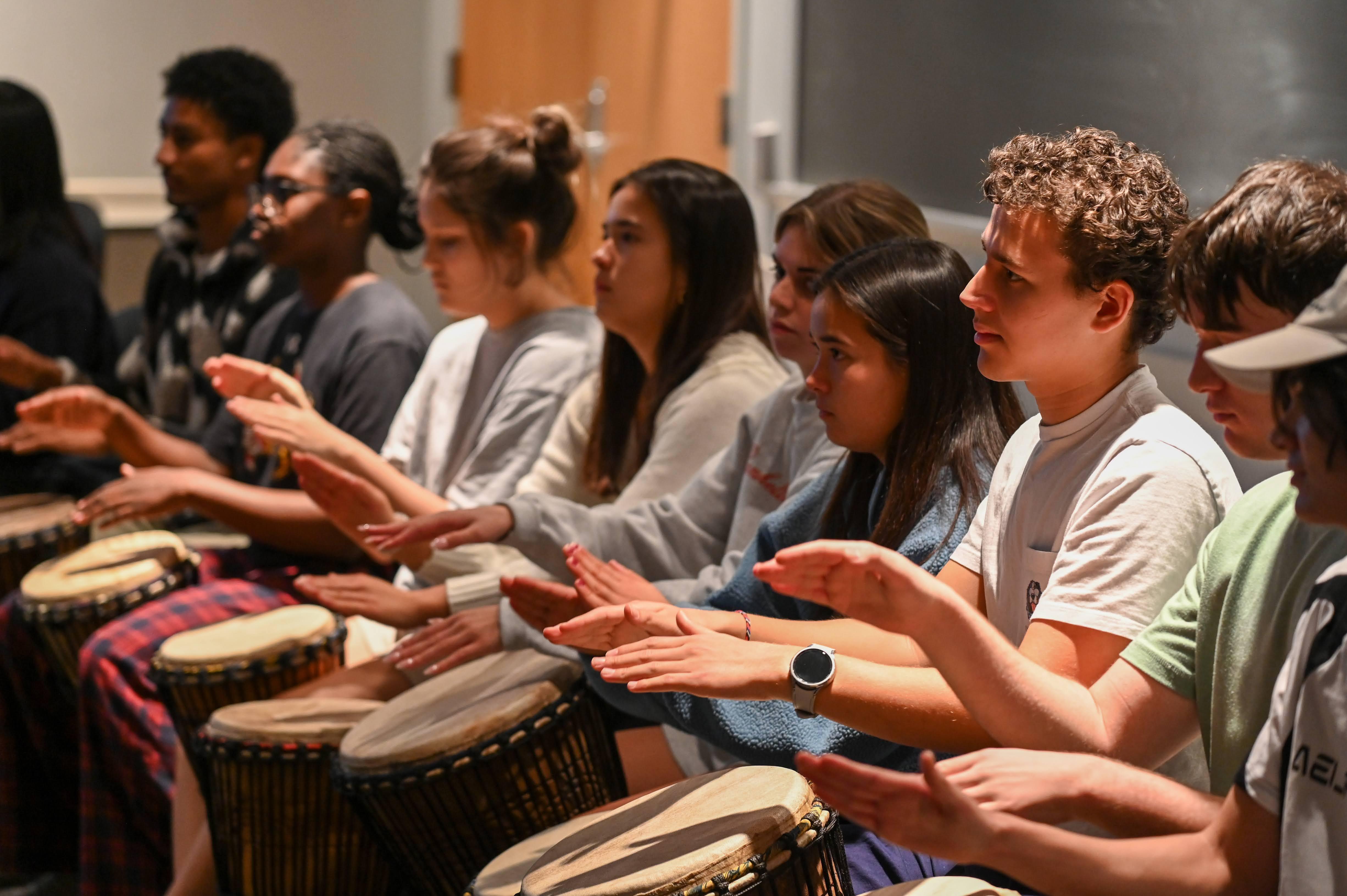
Colloquium and Lecture Topics
Through a mix of lectures, discussions, and guest artist workshops, and experiential projects, students consider (see our most recent “Year in Review” page for photos!):
- Vogue Dancing: How can art be used as a tool for resilience, resistance, and social chance?
- Artistic Consumption: How is artistic “taste” shaped by our social identities?
- Creative Research: How can empirical research, rapid iteration, and prototype testing improve your creative process?
- Spoken Word Improv: How can the principles of improv inform and improve our everyday lives?
- Campus Galleries: How can slow-looking help us combat the pressures of a frenzied world?
- West African Drumming: How can music build community, tell stories, and promote intercultural understanding?
I have been challenged to think differently, work cooperatively, embrace creativity and, most importantly, go beyond the limits I have set for myself. Because of this program, I can confidently say I feel infinitely more prepared for the “real world,” and for that confidence and growth, I could never be more grateful.
Other Learning Opportunities
Outside the classroom, Arts Scholars have many other opportunities….
Experience the arts first hand:
- Field trips: Each semester students visit locations such as The Clarice Performing Arts Center, the Everyman Theatre in Baltimore, the National Gallery of Art, and the National Museum of African American History and Culture.
- Maker Mixer: Teaching Assistant led community building events that include crafting, visiting campus galleries and maker-spaces, and attending shows on campus.
Creative Capstones:
- Sophomores develop capstone projects - identifying a social issue of significance to them to be explored through an artistic medium of their choosing. The capstone project is about your unique view of the world and what you want your audience to understand or experience as a result.
- All capstones are displayed at ArtsFest- an annual exhibition of student work in the Stamp Student Union.
Leadership opportunities:
- Arts Media Team: Social Media & Newsletter assistants work with Arts Faculty to research, draft, and publish the weekly newsletters and Instagram posts to the community.
- Arts Teaching Assistants: Arts Scholars graduates build their skills and experience leading discussions, developing events, and serving as mentors to current students.
Curriculum Overview
Over the two-year program experience (four semesters), students will complete up to 6 credits of supporting courses that will count toward your Arts Scholars citation. In most cases, these will also fulfill General Education requirements. Note that your Scholars courses—colloquiums, capstone practicum and supporting courses—will generally be in addition to any courses you take to satisfy major requirements.
The following represents a typical two-year curriculum, but individual schedules may vary. Details about courses and requirements can be found on the Arts Citation Checklist.
| SEMESTER | COURSE | CREDITS |
|---|---|---|
| Semester 1 | CPSA 100: Colloquium I | 1 credit |
| Semester 2 | CPSA 101: Colloquium II | 1 credit |
| Semester 3 | CPSA 200: Colloquium III | 1 credit |
| Semester 4 | CPSA 201: Colloquium IV | 1 credits |
| CPSA 240: Service Learning; or CPSA 250: Research (DSSP); or CPSA 260: Peer Teaching (DSSP) |
2 credits 2 credits 2 credits |
|
| Semester 1, 2, 3, or 4 | Supporting Course (var. Gen Ed) Supporting Course (var. Gen Ed) Supporting Course (DVUP or DVCC) |
3 credits 3 credits 1-3 credits |
Sponsoring College
Faculty
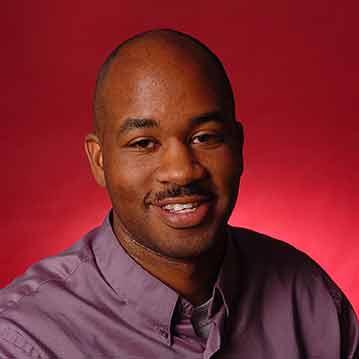
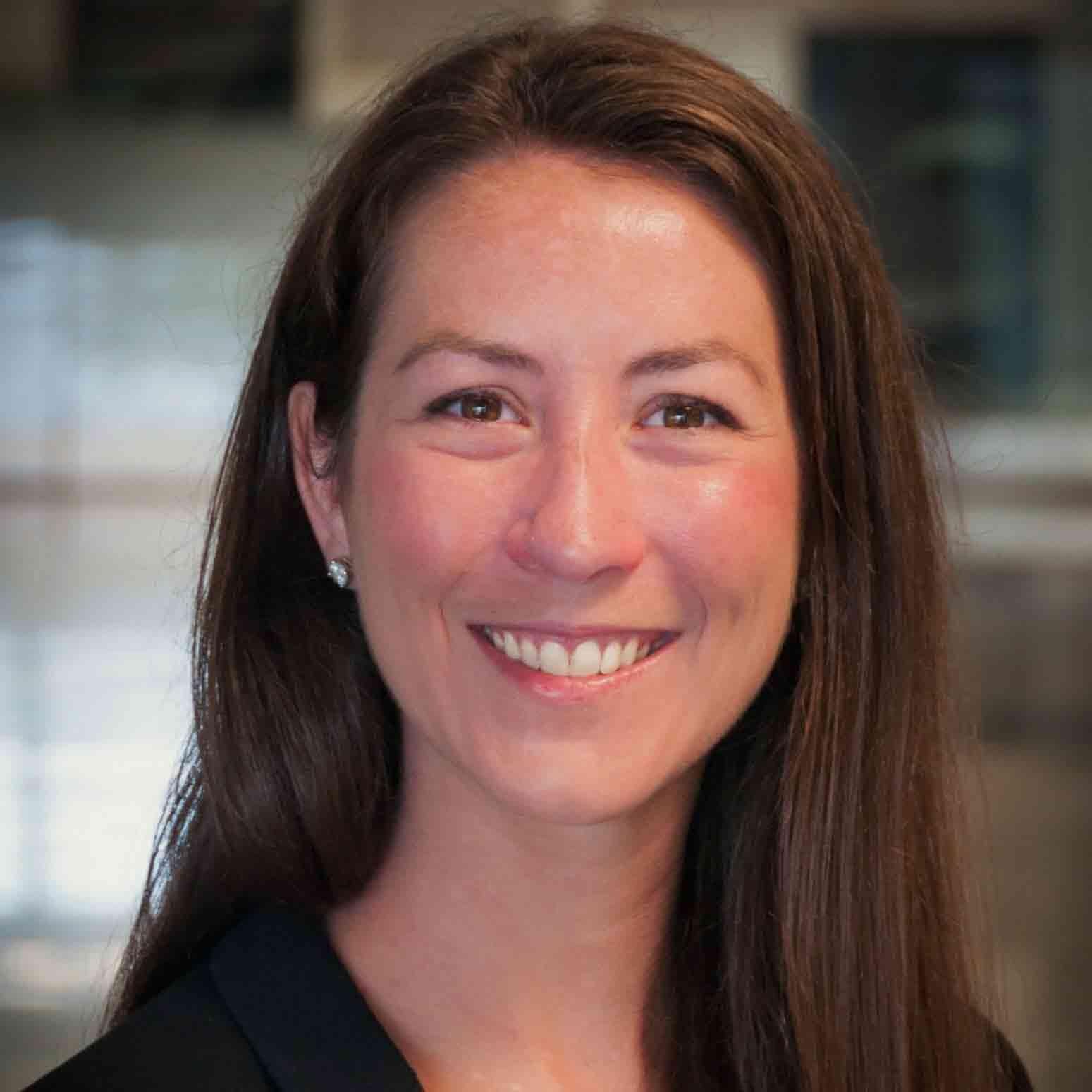
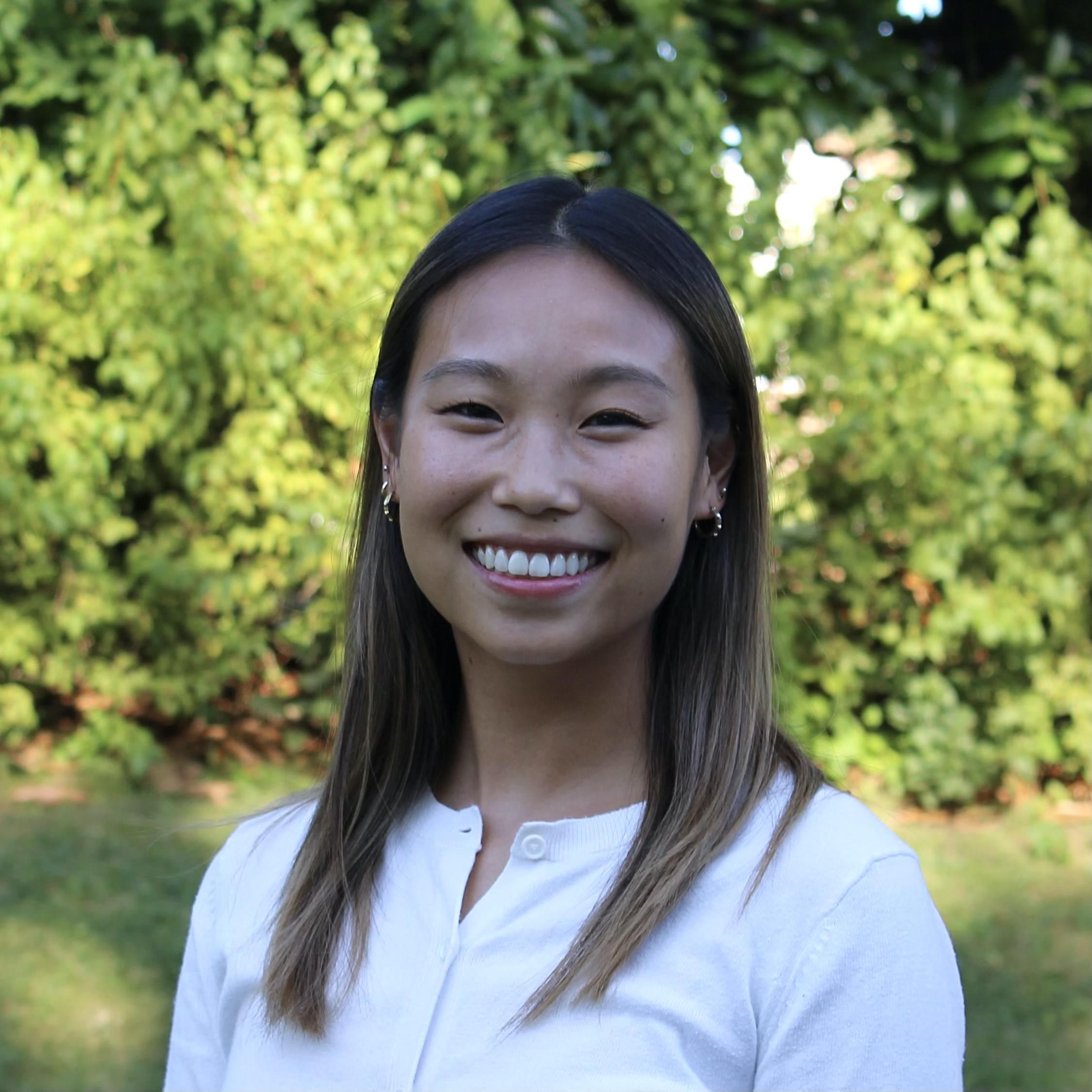
The Diamondback: UMD students' dance workshop highlights Japanese Butoh style, May 2022
Arts News
College Park Scholars Grieves Unexpected Passing of BSE Director Mark Wellman
College Park Scholars is grieving the loss of Dr. Mark Wellman, director of the Business, Society and the Economy (BSE) Scholars program, who died unexpectedly last week of a heart attack. He had served as director of BSE since 2005. A clinical professor in the Robert H. Smith School of Business, Wellman had been at the University of Maryland since 1990 and had also recently stepped into the role of assistant dean of alumni and corporate engagement in the Smith School.
International Studies Scholars Alum Named Student Speaker for Winter Commencement
The University of Maryland (UMD) has announced its student speaker for its Winter 2021 Commencement: Kiara Anthony, an alum of the International Studies Scholars program. Anthony, a government and politics major, boasts a diverse array of experiences from across campus, from being a member of the UMD equestrian team to co-chairing the University Student Judiciary and more. She also reportedly likes to consider issues from a global, interconnected perspective—something she no doubt became good at doing during her time in International Studies Scholars.
4 Scholars Alums Among Senior Marshals at Winter Commencement
The University of Maryland recently announcement its roster of senior marshals for Winter Commencement, taking place Dec. 20. Among the 32 graduating seniors are four College Park Scholars alumni:
3 Scholars Alumni Named Merrill Presidential Scholars
Three College Park Scholars alumni were among the 19 Philip Merrill Presidential Scholars named by the University of Maryland (UMD) this past week: Sam Varga, Science, Discovery and the Universe Scholars Rina Torchinsky, Science, Technology and Society Scholars Selena Cen, Global Public Health Scholars Merrill Scholars, which are selected by the academic college and schools with undergraduate major programs, annually honors the university’s most successful seniors and their designated university faculty and K–12 teachers for their mentorship.
College Park Scholars Awards First Rebecca Basena Kampi Memorial Scholarship
College Park Scholars has awarded its inaugural Rebecca Basena Kampi Memorial Scholarship to Joy Nash, a junior materials science and engineering major and an alum of the Media, Self and Society Scholars program. The scholarship provides financial support for undergraduate students in College Park Scholars who, through their leadership and public service, work to produce social change and support social justice.

